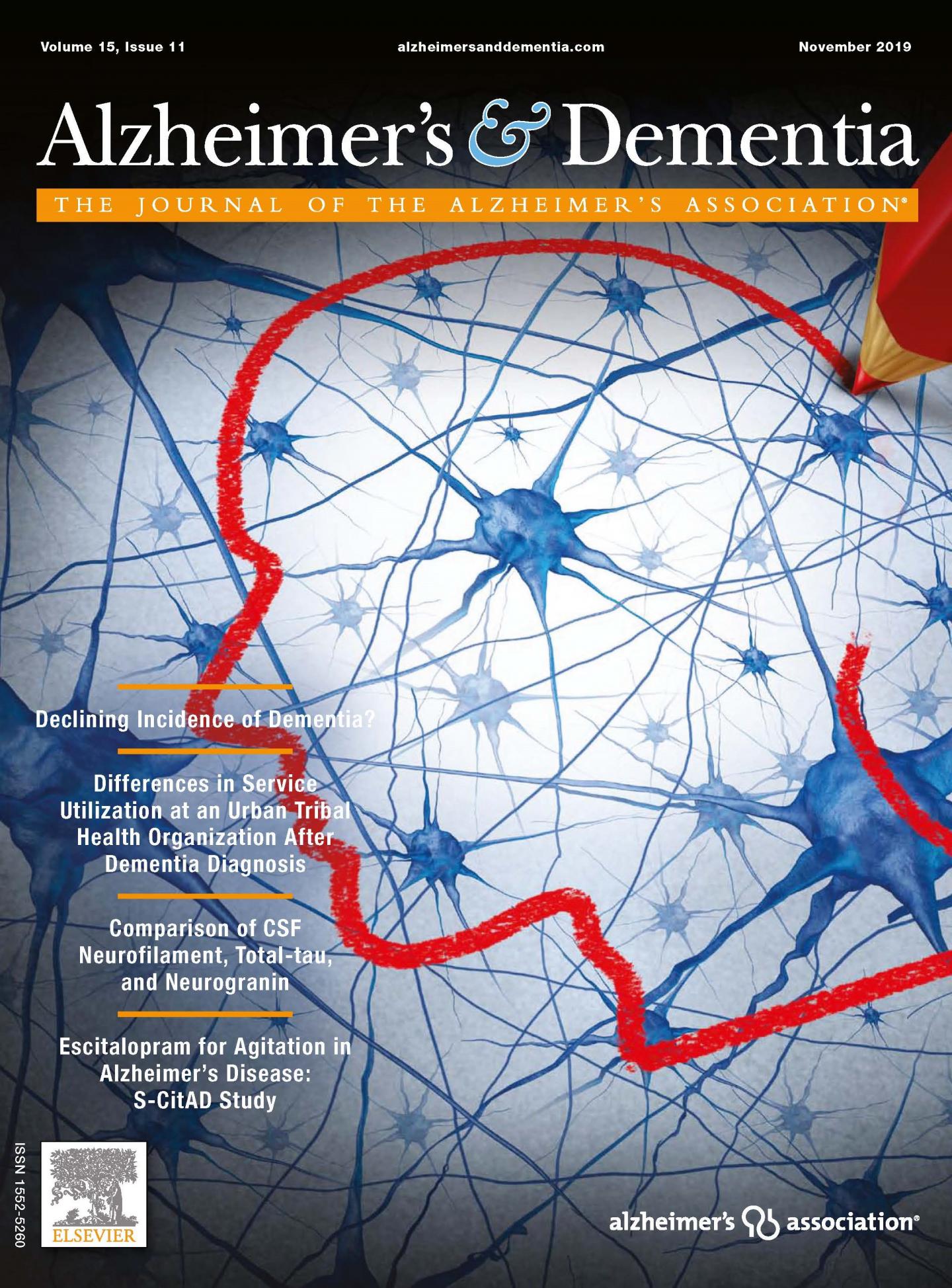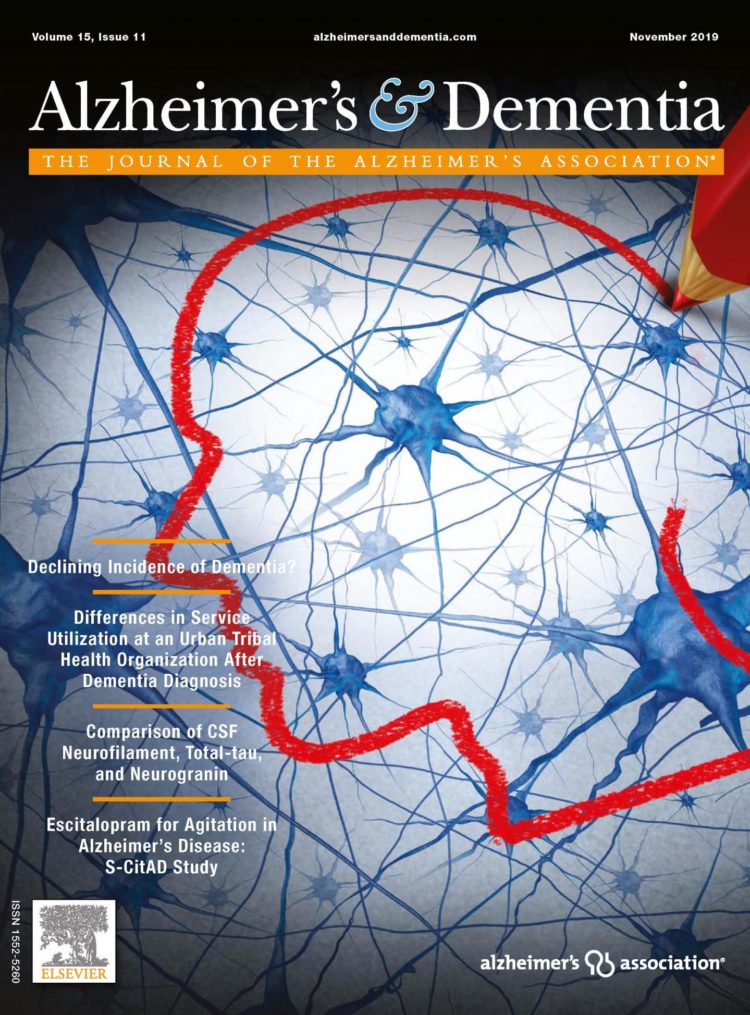Alzheimer’s & Dementia: The Journal of the Alzheimer’s Association November 2019 Journal Digest

Credit: Alzheimer’s Association
CHICAGO, November 22, 2019 – In the largest dementia study of a diverse group of U.S. Latinos to date, researchers found that nearly 10% of middle-age and older Latinos have a decline in memory and thinking skills known as mild cognitive impairment (MCI), according to a new article published online by Alzheimer’s & Dementia: The Journal of the Alzheimer’s Association. MCI marks early memory changes that can progress to dementia.
Hector M. González, Ph.D., University of California, San Diego, and colleagues analyzed data from more than 6,000 individuals in the ongoing Study of Latinos-Investigation of Neurocognitive Aging (SOL-INCA) funded by the National Institutes of Health. The researchers found that older age, high cardiovascular disease risk and depression symptoms were significantly associated with MCI diagnosis. MCI prevalence rates ranged from 12.9% for individuals with Puerto Rican backgrounds to 8.0% among individuals with Cuban backgrounds.
Link: “Prevalence and correlates of mild cognitive impairments among diverse Hispanics/Latinos: Study of Latinos-Investigation of Neurocognitive Aging results”
In a related Perspectives article, also newly published online, Dr. González and colleagues offer SOL-INCA to illustrate a new framework for advancing research into Alzheimer’s and other dementias in Latino populations. Latinos represent nearly one-fifth of the U.S. population, and are a growing segment that is culturally and genetically diverse, while also facing major risks and disparities for Alzheimer’s disease and related dementias.
Link: “A research framework for cognitive aging and Alzheimer’s disease among diverse US Latinos: Design and implementation of the Hispanic Community Health Study/Study of Latinos–Investigation of Neurocognitive Aging (SOL-INCA)”
A sharp upward change in the use of health care services, including twice as many primary care visits, was seen in the year that individuals received a diagnosis of Alzheimer’s or another dementia in the first study of tribal health care service use by Alaska Natives and American Indians. The paper by Krista R. Schaefer, M.P.H., from Southcentral Foundation, Anchorage, AK, and colleagues is published in the November print issue of Alzheimer’s & Dementia: The Journal of the Alzheimer’s Association.
“Alaska has the fastest growing population of people 65 years and older compared with any other state; moreover, Alaska Native and American Indian people make up to 20% of Alaska’s population. Therefore, healthcare systems will need to tailor their services in anticipation of an increase in the numbers of patients suffering from Alzheimer’s disease and related dementias,” the authors write.
Link: “Differences in service utilization at an urban tribal health organization before and after Alzheimer’s disease or related dementia diagnosis: A cohort study” (not embargoed)
Also in the November print issue, a research article from Denmark by Laerke Taudorf, M.D., from the University of Copenhagen, Denmark and colleagues analyzed data from three Danish national health registries for people 65 years and older. After adjusting for age and sex, the incidence rate (new cases) for the individuals in these population studies in Denmark increased by an average of 9% annually from 1996 to 2003, followed by a 2% annual decline, while total prevalence (number of people living with dementia) increased during the entire time and is still increasing. In conclusion, the authors state, “the decline in total incidence and incidence rates of dementia leads to a cautious optimism that with better health and management of risk factors, it may be possible to lower the risk of dementia.”
Link: “Declining incidence of dementia: A national registry-based study over 20 years” (not embargoed)
###
These articles and the rest of the November issue of Alzheimer’s & Dementia: The Journal of the Alzheimer’s Association are available online.
About the Alzheimer’s Association®
The Alzheimer’s Association is the leading voluntary health organization in Alzheimer’s care, support and research. Our mission is to eliminate Alzheimer’s disease through the advancement of research; to provide and enhance care and support for all affected; and to reduce the risk of dementia through the promotion of brain health. Our vision is a world without Alzheimer’s®. Visit http://www.
Media Contact
Jann Ingmire
[email protected]
312-335-5704
Original Source
https:/





